Marion travelled to Mexico in her 20s. The country was more than she could ever have imagined and she quickly fell in love with it. On returning home she unpacked all the objects that she’d collected along the way, shells, rocks, sugar skulls and tin toys. As the years passed their lustre faded – but not the spinning tops. She had bought them in Chiapas. These were the things that then moved with her from house to house. These were the familiar objects that her new husband had to embrace when they were first married. These play things, with their simple, satisfying shapes and their bright colours that soften as they spin, are the objects that have survived the twenty years since Marion first went to Mexico.
25 Nov 2012
Sheridan bought this Nikon F1 at a second hand camera shop in Romford in the late 70s. At an early age he’d borrowed his dad’s camera and processed the film himself. He was looking at Cartier-Bresson and later work by his dad’s friends. They were working in the 1960s newly heroic profession, that of fashion photography. The F1 was indestructable and manual. Sheridan was not a natural, he was quick to accept this. Today he is still taking photographs, still ‘as a happy amateur’.
18 Nov 2012
Since Duncan’s TV blew up a decade ago he’s not replaced it. He has a radio in every room. As a kid Radio 4 voiced over his family’s mornings. His dad shaved, dressed and joined a conveyor belt of suited men stretching from the end of their street to Worcester Park station. In the evening he would raid his dad’s record collection and fill the house with music, his mum complaining ‘it goes straight through me’. Duncan said it was meant to, that this was the music working. When he moved into the city at 19 the radio dial was solid with east London pirate radio stations, no longer a series of crackles occasionally punctuated by a plummy voice. The radio he took with him was his dads, it sits on his bookshelf today and still provides the sound track to his day.
11 Nov 2012
Michael grew up in Stratford in East London, a kid of the 70s he graduated from playing with Lego to shooting down invaders on his Atari. Now, as a dad himself, he’s conscious of reducing his own kids’ screen time. Michael says ‘Nothing joins like Lego’ and this tactile satisfaction can’t be achieved through gaming. The ‘stud and coupling’ of the plastic bricks hasn’t changed since it was developed in 1949. Michael insists he’s never seen a piece of broken Lego. He claims that there are fifty pieces for every person on the planet, the bulk of which live on his family’s kitchen table. But there is a problem. A serious design flaw. Michael leans forward as he earnestly confides ‘There is no pain, like the pain of a Lego brick under your feet at two in the morning’.
04 Nov 2012
Punka was born on a rubber plantation in Malaya. His family’s fortunes grew with the burgeoning auto industry but deflated as the depression of the 30s hit. The family returned to the UK and in his 20s Punka felt the pull of SE Asia again. He returned with his new wife. They travelled out separately, Punka leaving first for work followed by Mimi who was just 21. Her boat finally docked a month and a half later. In 1949 their daughter Christie was born. Punka continued to travel for work and Christie was sent to boarding school in England. This was her doll, hand made in Malaya in the mid 50s. When Christie had her own daughter, the doll migrated from her room to Miranda’s. The doll is 60 years old this year. She is slightly threadbare and floppy, but she has always felt old and delicate. Miranda says, for anyone who picks up the doll, it’s impossible not to be gentle.
28 Oct 2012
It wasn’t the natural team for a boy growing up in Hertfordshire but Tom’s mum had grown up in Norwich so Tom became a Norwich City supporter. The family had a long history with the team, Tom’s great aunt never missed a game – on the radio. She was still cutting reports from the sports pages into her 90s. The family even played for Norwich, Geno Yallop, Tom’s grandad’s great uncle, played in their first team in 1902. Less ceremoniously, he was also their first player to be sent off. Tom and his two brothers never played professionally but when they played as kids they always adopted the names of professionals. Nick, Tom’s elder brother, an Arsenal fan, played as their star midfielder Liam Brady. Nick served up the humiliation of insisting Tom also play for Arsenal, as Alan Sunderland, with his silly bubble perm. But Tom knew he was a Norwich man, he’s had this shirt since he was five years old.
21 Oct 2012
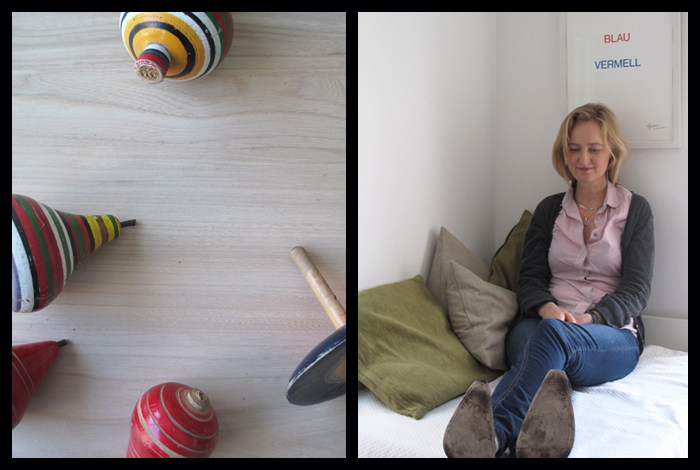
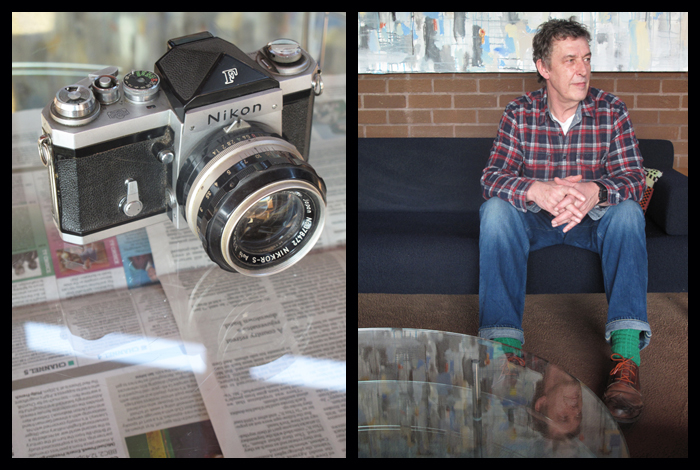
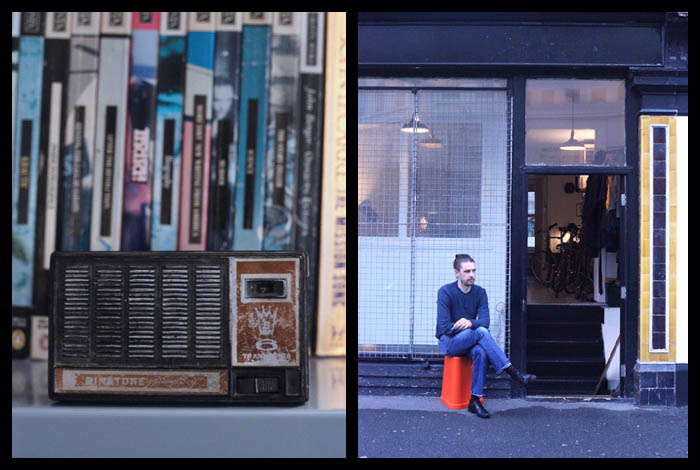
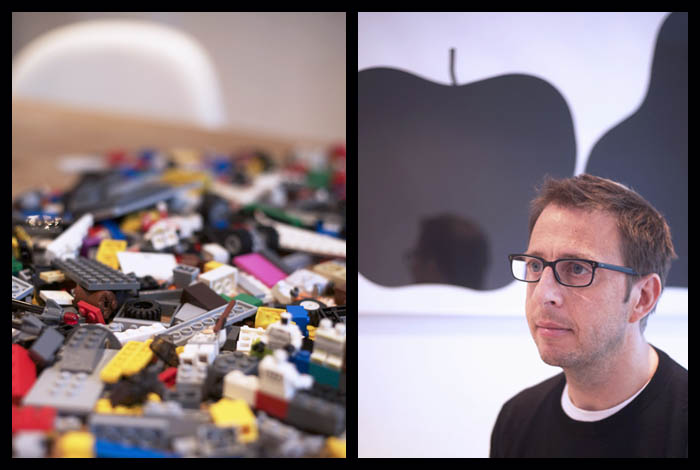
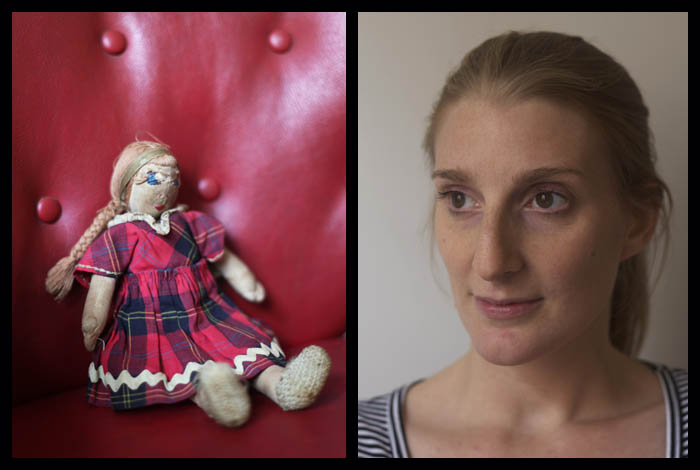
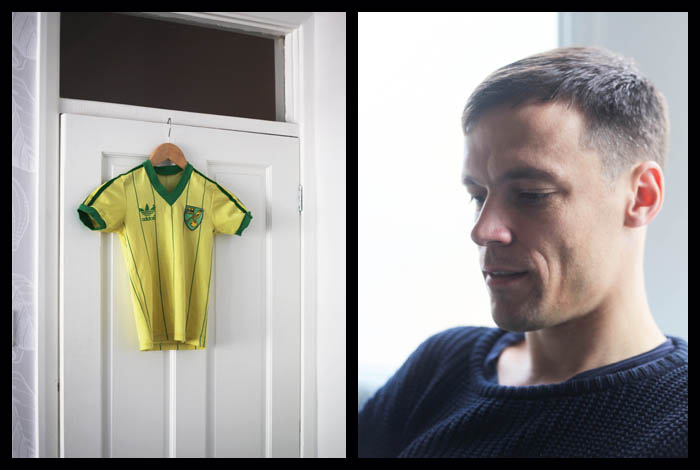
 Subscribe to RSS
Subscribe to RSS Follow us on Twitter
Follow us on Twitter